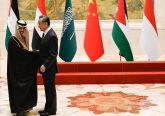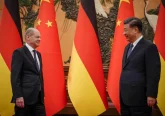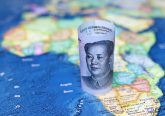Recent years have seen a global resurgence of ethnic nationalism. Yet, political identities based on ethnicity are nothing new. In fact, ethno-nationalist desires reshaped Europe’s borders in the early 20th century with devastating consequences. Despite more than seven decades of relative peace, largely kept in place by the multilateral organizations and deepening global integration, nationalism appears to be returning to the forefront of politics once more.
In Europe, politicians and political parties are tapping on anti-immigrant nationalist sentiment. For instance, Italy’s Matteo Salvini has openly advocated solutions which involve marginalizing ethnically-defined “others”. Rogers Brubaker, professor of sociology at UCLA, has coined the term “civilizationism” to describe the rhetoric used by multiple European political parties which claims that the ethno-cultural homogeneity of the West is under threat from Islam. Even in the United States, white nationalists are increasingly emboldened in stating their dislike for culturally-foreign immigrants, with the number of white nationalists attempting to run for national office at its highest in American history.
Despite arguments by political scientist Ronald Inglehart, the surge in ethno-nationalist sentiment is not solely present in states or regions plagued by economic imbalances and inequality. In China, which has been experiencing an unprecedented economic boom, ethnic nationalism is prevalent. If ethnic nationalism threatens to tear the West apart, it is consciously promoted in China to further its political and economic ambitions.
Since the founding of modern China to the present day, being “Chinese” almost always refers to those of the Han Chinese ethnicity; to the exclusion of others. For instance in 1911, a leading newspaper wrote: “In order to restore the Chinese nation, we must drive the barbarian Manchus back…(and) overthrow the (ethnically-Manchu) Qing government”. It has been commonplace for Chinese leaders to fan the flames of ethnic nationalism within China to advance the goal of progress. Despite official policy granting China’s ethnic minorities equal rights, they continue to face widespread discrimination from the Han majority regarding employment opportunities, or even hotel bookings. This means that as ethnic minorities such as Uyghurs and Tibetans are constantly denied the opportunity to benefit from China’s economic boom, further cementing ethnic Han dominance on all levels of society.
However, China has also relied on ethnic nationalism abroad. Since Deng Xiaoping initiated the Open Door Policy to promote foreign investment into China, the Chinese government has laid down the red carpet for ethnic Chinese diasporas around the world. Today, they provide the largest share of foreign investment into China. Rather than limiting its ethno-nationalist policies within its borders, China has increasingly sought to export such policies overseas by demanding the loyalty of ethnic Chinese who are citizens of other states.
Blurring the distinction between ethnically-Chinese citizens of other states (“huaren”) and citizens of China who have settled overseas (“huaqiao”) and grouping them under the umbrella term of “Chinese overseas compatriots (“haiwai qiaobao”) has allowed China to tap upon its ethnically-Han diaspora as an economic resource. At business conferences targeted at diasporic Chinese businessmen worldwide, Chinese officials continue to invoke ethno-nationalist sentiment by claiming that despite being overseas, ethnic Chinese still have their “hearts linked to the homeland”.
This pursuit of ethno-nationalist policies by China is especially dangerous due to the threat it poses to the societal fabric of other states. For example, in Australia, the local Chinese-language media tends to follow the fiercely nationalistic tone set by China’s state-run outlets. This, together with large amounts of Chinese foreign investment, is starting to lead to a backlash against ethnic Chinese citizens who are already feeling the pressure to avoid being accused of acting as foreign agents.
In Southeast Asia, where a sizeable population of ethnic Chinese reside, China’s ethno-nationalist policies are posing a daunting threat. In Malaysia, for example, decades-long anti-Chinese discrimination coupled with China’s invitation for ethnic Chinese overseas to partake in the Chinese dream, have led to a brain drain, which has reached critical levels. In Singapore, the only country outside of mainland China, Taiwan, Hong Kong and Macau with an ethnic-Chinese majority, the issue is one of existential security, as claimed by a retired Singaporean diplomat.
Given China’s embrace of ethnic nationalism as a source of strength, the divisions and propensity for conflict that such ideology produces might very well result in a backlash that aggravates anti-Chinese prejudice and even endangers ethnic Chinese abroad. However, Beijing’s attempts to export its ethno-nationalist policies to the Chinese diaspora not only threaten them, but also have implications for the states in which they reside, which have long relied upon on values of multiculturalism to prosper and flourish.
To conclude, the export of China’s embrace of ethno-nationalist policies to the Chinese diasporas around the world to advance its political and economic agenda points to a worrying future because it fuels the flames of ethnic and racial conflict. Yet all is not lost, as an old adage goes “the first step in solving a problem is recognizing there is one”.







